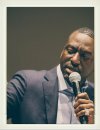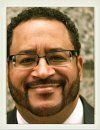• Can the digital technology strategies so successful in reaching young voters in 2012 be remixed for grassroots activist efforts today?
• What is the potential for a third political party or political force beyond the two-party system?
• Can young voters have a more transformative impact in local rather than national elections?
• What models are emerging for grassroots activism in cities like Ferguson and Detroit that prove more effective than unwilling government efforts?
• What will be the influence of hip-hop in 2016, given its influence with young voters in past election cycles?
• Given high voter turn outs in 2008 and 2012 among young Blacks and women, in what ways are these groups leveraging their influence today?








